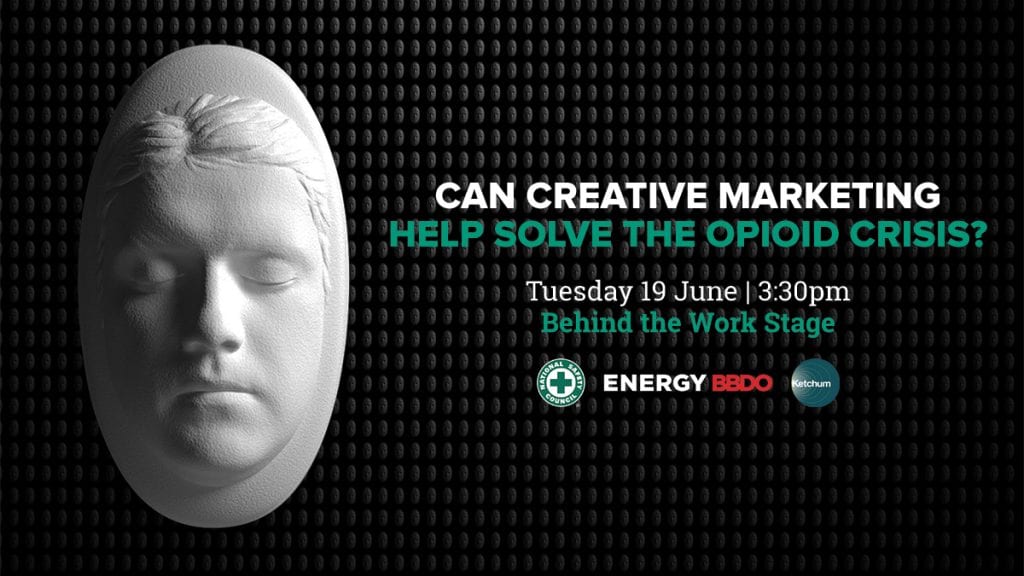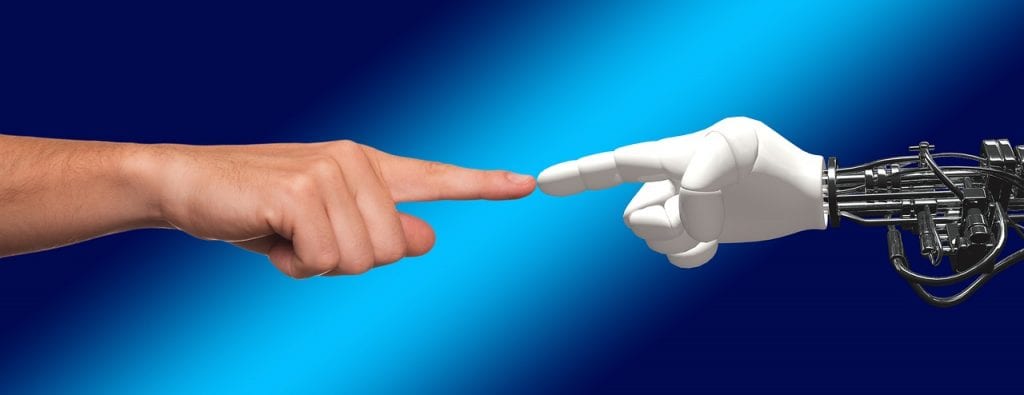How prophetic that the debut of Marcel, the AI platform Publicis says will transform its business, is scheduled at the Cannes Lions Festival of Creativity at virtually the same time I will be speaking about a campaign to change the human behaviors that caused the opioid crisis.

Why prophetic? The session starring a machine that can do human things like fill in time sheets (yes please), match employees to projects based on skills and availability, and predict client needs, will likely lure the crowds away from the session about an award-winning campaign that awakened humans to the dangers of opioids; coaxed people to talk about and resist them, and created understanding and empathy with a memorial to the dead, carved from actual pills reflecting their faces.
The humanization of the deadliest health crisis in America will be trumped by an AI-powered professional assistant platform.
Intelligent machines will surely dominate this year’s gathering of marketers and creators in the south of France, as the creative communications industry wrestles with how Artificial Intelligence impacts the human aspect of the creative process and creativity itself.

The week kicks off with a session aptly named Human + Machine: Stronger Together in the Age of Co-Creation, hosted by Adobe and Microsoft, that examines how powerful technologies are amplifying the human experience across IoT, VR, AR, MR, blockchain, high-performance computing (HCP), and machine learning. And to quell concerns that AI threatens human creativity, Adobe will convene creative luminaries to discuss how AI and machine learning actually boost human creativity in a forum called, Accelerating Creativity in the Age of AI.
Yet, despite these reassuring titles, the Cannes lineup promises some anxiety too as most of the week offers provocative debate. In Is Technology the Downfall or Saviour of Creativity? Samsung CMO YH Lee will discuss how faster (5G), smarter (AI), and ubiquitous (IoT) technology will alter our creative futures irreversibly. Similarly, AI Will Kill Creative. AI Will Save Creative will include an argument that an algorithm can learn the rules and intuition needed for creativity, thereby killing the creative profession.
One session I’m keen to hear is The Ethics of AI about our responsibility as designers, brands and users to ensure we design AI that creates a fairer world. To make users feel comfortable with AI’s liability, transparency, security, bias, and values, AI design will need an ethical code. What should that look like? Today AI is helping the technocratic elite live a better life. How do we ensure that AI empowers the many not the few?
As the festival hits its stride, the sessions grow more futuristic. In Holograms and the Pursuit of Presence in AR/VR we will see how telepresence, holographic entertainment, and digital clones are brought to life through computer vision and machine learning, with applications in retail, fashion, sports, music, and film. I’m intrigued to see how these new 3D experiences on mobile and immersive platforms will blur the lines of reality in our increasingly augmented and virtual world.
Another late week session that piques my interest is What AI Teaches Us About Creativity and the Universe. We will hear from artist, Sougwen Chung, physicist Adrian Bejan, and AI philosopher George Zarkadakis about how the intersection of augmented intelligence, neuroscience, and designs in nature have the potential to reveal our place in the universe – and why creativity is the key to unlocking these hidden patterns in nature.
Finally, in Making The Unknown, Known: How AI is Revolutionizing Decision Making we will learn how artificial intelligence may be the answer to fake news. Faced with the explosion of content, the fact that 80 percent of business expertise is locked away in the heads of people, and the increase in misinformation, AI apparently offers a solution. AI can apply a layer of machine learning to the world’s data, surfacing truthful information and discarding misinformation in seconds to give businesses trust in what they read while improving the quality of every decision a business makes.
I’m not sure what kind of mood all this AI talk will put me in, so I’m comforted that futurist Faith Popcorn will be in Cannes to predict the emerging role of Mood Manipulation in our culture, altering how we live, work and do business.
I’m fairly certain only people’s moods can be manipulated, so I’ll be checking in with Faith to hear how her vision opens new opportunities for human creativity.



